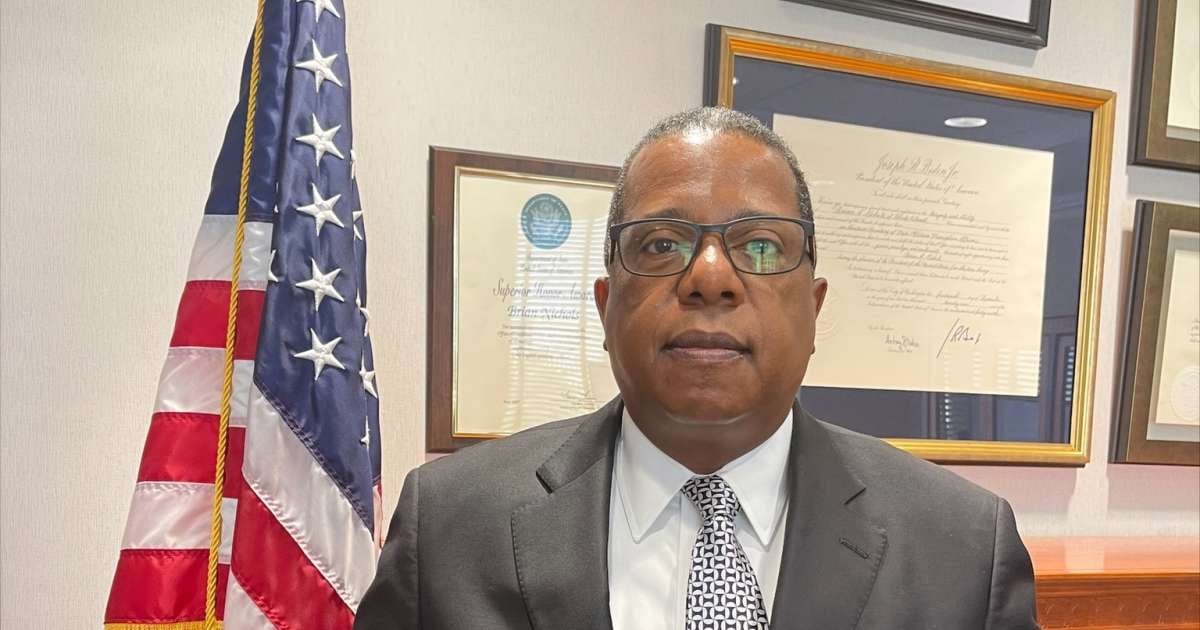
The U.S. Assistant Secretary of State for Western Hemisphere Affairs, Brian A. Nichols, commented this Monday on the death of Cuban political prisoner Manuel de Jesús Guillén Esplugas, who was serving a six-year sentence for recording and publishing videos of the protests on July 11, 2021 (11J).
In a message posted on the social media platform X, Nichols expressed sorrow over the news, calling it "tragic" and noting the allegations of torture as part of the circumstances surrounding the young man's death in a Cuban prison.
"More than three years ago, Manuel de Jesús Guillén Esplugas was sentenced to six years in prison for the simple act of recording and publishing videos of the protests on July 11. Unfortunately, today we learned of his death in a Cuban prison amid reports of torture," he wrote.
The senior official also reported an "alarming trend" of mistreatment of political prisoners by Cuban authorities in recent weeks, specifically mentioning the physical assaults suffered by José Daniel Ferrer, another prominent detained Cuban dissident.
"Manuel should still be alive, and the other political prisoners should be released immediately," Nichols added, reiterating the United States' call for the release of those detained for political reasons in Cuba.
As the hours go by, opposition to the murder of the young man, who was also the great-grandson of Cuba's National Poet, Nicolás Guillén, is growing on social media.
The regime informed the family that the young man took his own life, a claim that Yan Franco Esplugas, who identified himself on social media as the deceased young man's first cousin, has categorically denied.
The Cuban regime currently holds 554 individuals in prison for participating in the anti-government protests that took place in July 2021 across dozens of cities and towns in Cuba, the largest recorded in the country, as reported recently by the independent organization Justicia 11J.
In its third annual report, "Another Year Without Justice," for 2024, the non-governmental organization revealed that 1,586 people were detained for participating in the popular protests of July 11, of which 554—35%—are still in prison three years later, “with confirmed sentences following appeals that extend to over 20 years of imprisonment.”
Frequently Asked Questions about the Murder of Manuel de Jesús Guillén and the Repression in Cuba
Who was Manuel de Jesús Guillén Esplugas?
Manuel de Jesús Guillén Esplugas was a Cuban political prisoner, a member of the Patriotic Union of Cuba (UNPACU), and an advocate for Cuba Decide. He participated in the protests on July 11, 2021, and was incarcerated in the Combinado del Este prison in Havana. His murder was reported under unclear circumstances by the authorities, prompting outrage and condemnation from activists and Cuban opponents.
What is known about the conditions of political prisoners in Cuba?
The conditions of political prisoners in Cuba are alarming, with reports of torture, cruel and inhumane treatment, and inadequate medical care. Reports indicate that Cuban prisons face severe shortages of food and hygiene products, contributing to a deplorable state of health among the detainees. Activists and international organizations have called for improvements in prison conditions and the release of political prisoners.
How has the international community reacted to the repression in Cuba?
The international community has expressed concern over the repression in Cuba, with calls from political figures and human rights organizations for an end to arbitrary detentions and the release of political prisoners. The U.S. Assistant Secretary for Western Hemisphere Affairs and members of the European Parliament have called for sanctions and concrete actions against the Cuban government.
What is the current situation of José Daniel Ferrer, leader of UNPACU?
José Daniel Ferrer, leader of UNPACU, remains incarcerated under conditions that have been described as cruel and inhumane. He has been subjected to beatings and is in a deteriorating state of health, leading to concerns from his family and the international community. Despite this, Ferrer remains committed to the fight for freedom and human rights in Cuba.
What have the families of the political prisoners reported about the treatment they receive?
The families of political prisoners in Cuba have denounced the inhumane treatment and degrading conditions to which their loved ones are subjected. Reports indicate cases of physical and psychological torture, lack of medical attention, and severe restrictions on contact with their families, exacerbating their health and well-being. These denunciations aim to generate international pressure to improve the conditions of the prisoners and achieve their release.
Filed under: